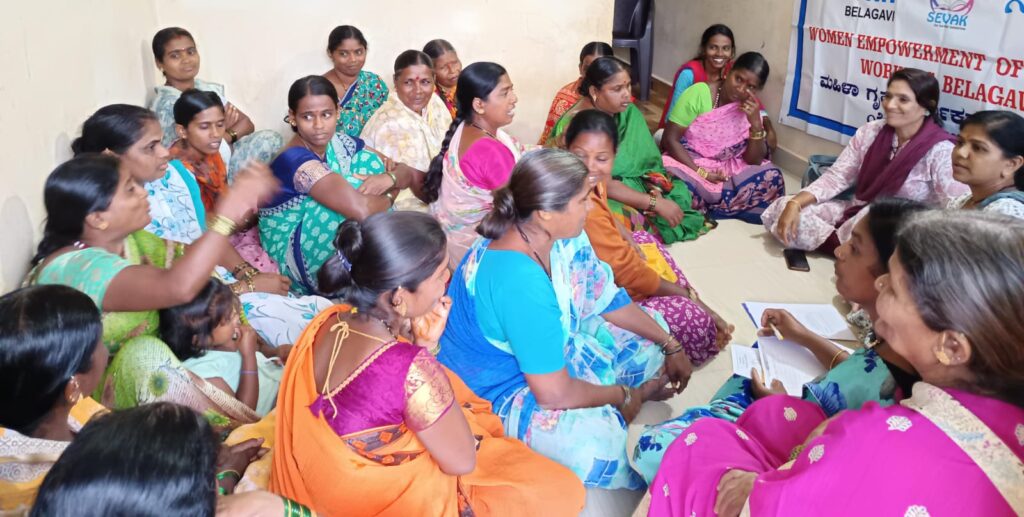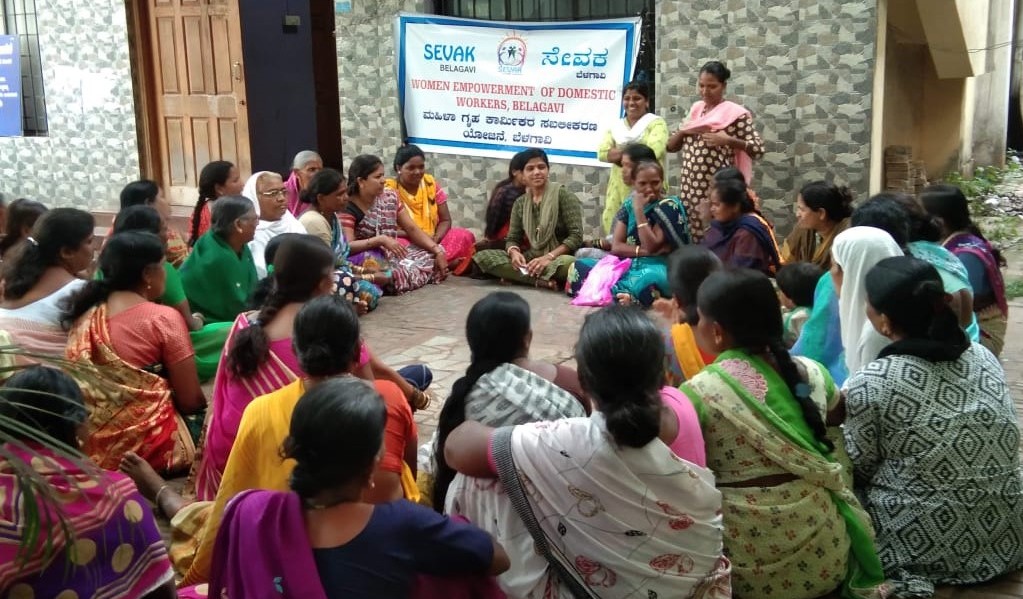DOMESTIC WORKERS EMPOWERMENT
The Importance of Domestic Work
Domestic work is a primary source of employment for many women globally, often representing one of the few available opportunities to earn a living. Many of these women come from economically disadvantaged backgrounds, migrating from rural areas to cities in search of work. Domestic workers play a crucial role in maintaining households, contributing significantly to the well-being of families. Despite their essential contributions, domestic workers remain one of the most vulnerable and neglected groups in the workforce.

Challenges Faced by Domestic Workers
Domestic workers face numerous challenges, including exploitation and abuse. A national survey of domestic workers reveals that many live in conditions of dependency and exploitation, often in quasi-bondage. They are frequently excluded from traditional labour laws and protections because their work occurs within private homes, which are not typically considered formal workplaces.
Key challenges include:
– Lack of recognition as legitimate employees.
– Exclusion from national labour laws.
– Absence of work contracts, social security, job stability, wage increases, paid leave, or medical benefits.
– Physically demanding tasks with long working hours.
– Vulnerability to exploitation, particularly for children involved in domestic work.
Exclusion from Labour Laws
Domestic workers are typically excluded from the protections provided by national labour laws. As a result, they do not have access to benefits such as workers’ compensation, minimum wage protections, or weekly days off. This lack of legal acknowledgment and protection has reduced their labour to a form of modern slavery. However, after years of protests and advocacy, the central government has begun to include domestic workers under the Unorganized Sector Workers’ Social Security Act , offering them some level of protection and recognition.
Project Overview
In collaboration with the Fideel Foundation from the Netherlands, SEVAK is working to empower female domestic workers in Belagavi and Mangalore. This project focuses on identifying and addressing the concerns of domestic workers, who form a significant portion of the workforce in these cities.
Key Interventions
1. Association Formation: Over 7,000 domestic workers have been organized into an association.
2. Support from Labour Department: The association works with the Labour Department to help domestic workers.
3. Access to Programs: This partnership enables domestic workers to access various government welfare and development programs.
4. Focus on Female Workers: The initiative specifically aims to enhance the rights of female domestic workers.
5. Empowerment Goals: Empowering domestic workers is central to ensuring they gain recognition, protection, and dignity in their roles.

